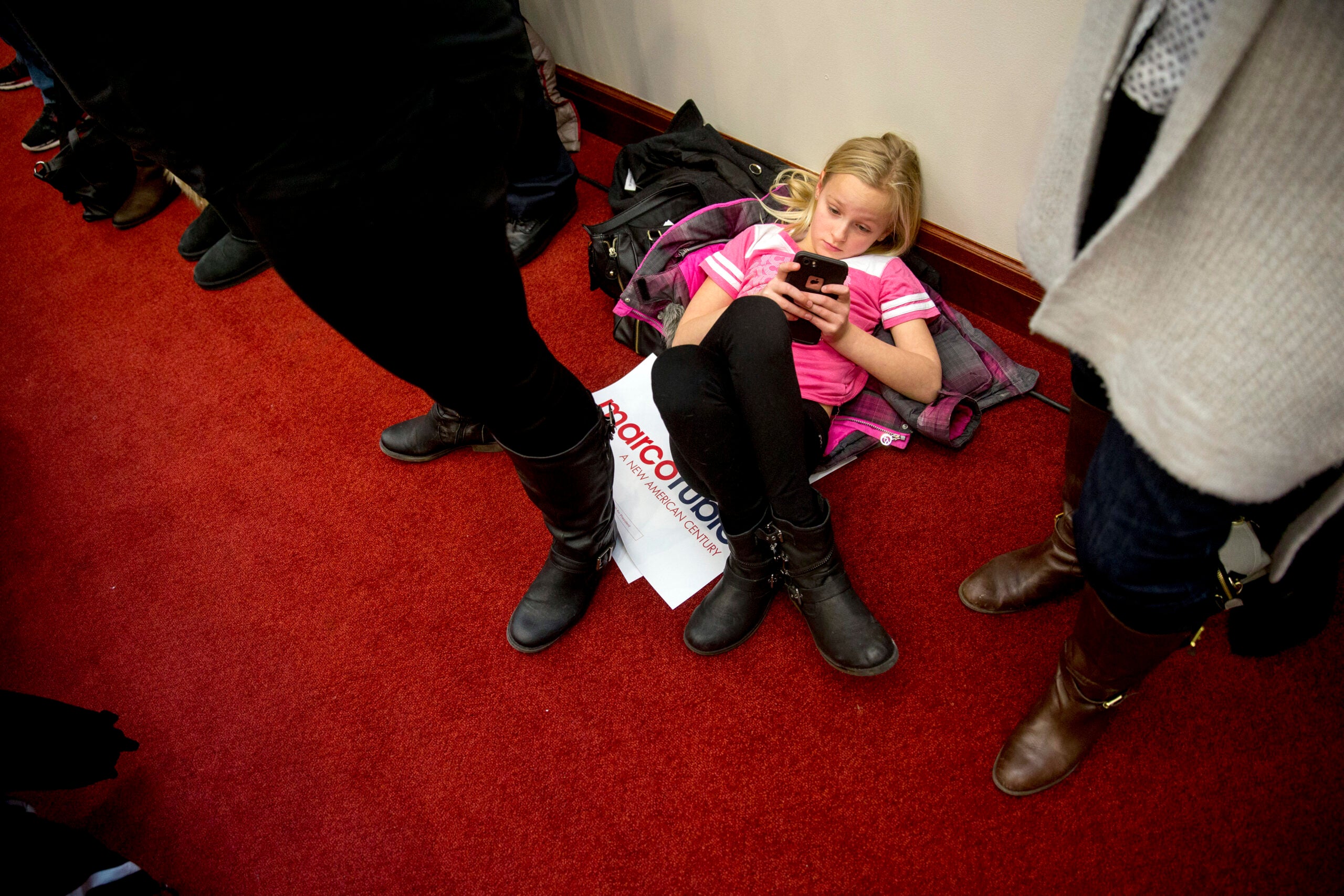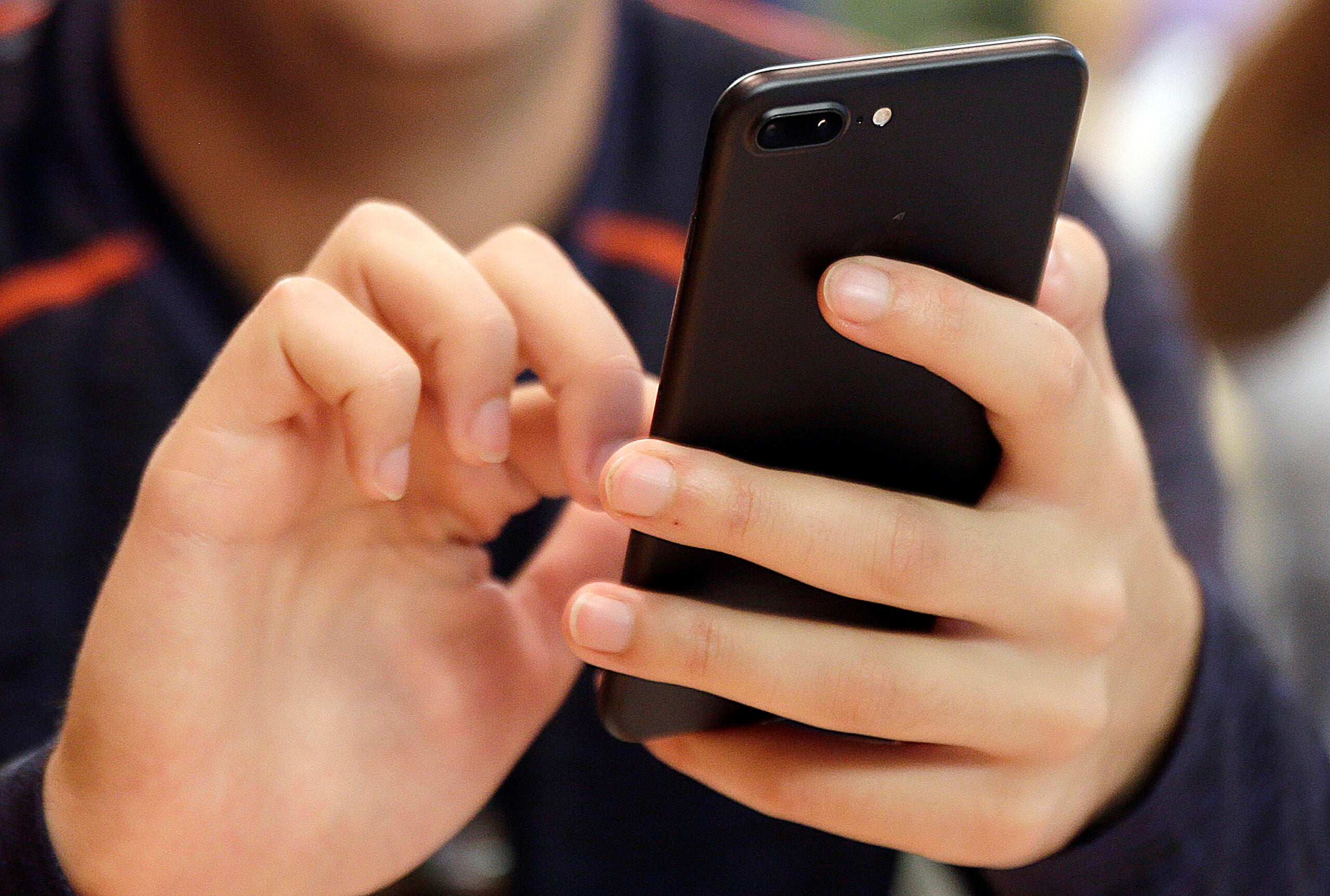Wisconsin’s teenagers could see their access to social media limited under legislation being considered at the state Capitol.
Rep. David Steffen, R-Green Bay, says he’ll sponsor a bill that would give parents full control over their kids’ social media accounts and impose a curfew for social media users under 18.
He says it’s an effort to address mental health concerns stemming from overuse of popular platforms like Snapchat, Instagram and TikTok, and to keep children safe from bullying, harassment and even trafficking.
Stay informed on the latest news
Sign up for WPR’s email newsletter.
“We need to start taking a first step at ensuring our children are safe on the social media platforms. Right now, they’re not,” Steffen said during an appearance on Wisconsin Public Radio’s Central Time. “It is the wild, wild electronic West.”
Steffen has yet to formally introduce the legislation. He said he’ll first solicit insight from parents, teachers and mental health professionals.
The legislation will be modeled on a first-of-its-kind law signed last month in Utah, according to Steffen. That law is set to take effect on March of next year, but is expected to face legal challenges.
Opponents of such legislation say it can hamper social development and creativity. And some argue that it’s up to parents to monitor youth exposure to online platforms.
It’s also not clear that social media use contributes to young people’s emotional struggles, said Heather Kerkorian, who researches the effects of media on children’s development and family interactions at the University of Wisconsin-Madison.
“If we look at individual kids, some kids might benefit a lot from social media, some might be harmed by social media and most of them are not affected much,” Kerkorian said.
Bill would impose a curfew for kids, steep fines for the companies
According to a policy brief from Steffen’s office, the legislation would require age verification for every new account created after January 1, 2019. It would give parents full access to their kids’ accounts, and put all accounts to sleep from 10 p.m. to 7 a.m.
It would also restrict the kinds of targeted ads minor accounts are shown, and establish fines for noncompliant social media companies of up to $100 per day per account.
The legislation could also offer families a legal pathway for filing a complaint against a social media company, Steffen said.
“Right now, if you have a problem with Facebook, Snapchat, Instagram, who do you really go to?” he said. “By empowering The Department of (Agriculture, Trade and) Consumer Protection here in Wisconsin, we’ll finally have a big player that can be on equal footing against the social media giants. And hopefully we’ll get better compliance.”
The Utah law is not yet in effect, but it has spotlighted some challenges to enforcing these measures.
Social media is already restricted for children under 13, but critics point out that such limits are often unenforced and ineffective. Minors could similarly circumvent requirements to provide adult identification, too, they argue.
Nonetheless, at least five other states, including Arkansas, Texas, Ohio, New Jersey and Louisiana, are considering similar laws.
At the national level, members of Congress held hearings last month with leaders from TikTok, citing concerns about surveillance and overuse among teens.
Democratic U.S. Sen. Tammy Baldwin also co-introduced a bill that would give the U.S. Commerce Department more regulatory oversight of social media platforms.
Experts differ on the potential harms of social media
Teens lead increasingly large portions of their lives online, with one recent study estimating that more than half of teens use social media every day, for an average of more than an hour-and-a-half.
A growing body of research is looking into the effect of social media on a developing young mind. Findings suggest that young people can benefit from the social interactions that these platforms offer, but that those interactions can sometimes be the emotional equivalent of “empty calories.”
Steffen said his proposal would take an important step to addressing mental health struggles among young people.
“That level of anxiety, depression, sleep deprivation and self harm has absolutely skyrocketed in the last 15 years,” he said. “And there’s been a lot of studies that have directly correlated that to social media.”
He also cited research that suggests social media can lure young people into sexual situations, including trafficking, and that it can be an area where teens experience bullying and harassment.
In states that have proposed or passed similar legislation, young people have argued that these platforms offer them a means to connect with others, explore niche interests, develop hobbies, and participate in a social universe all their own, without parental involvement.
Critics also argue that such legislation limits a child’s right to free speech and privacy, and can create unsafe situations for LGBTQ youth in particular.
Kerkorian suggested that the same parenting techniques used to keep a child safe in the real world should be applied to the virtual world.
“A lot of the things that are important for screen time are just important for parenting in general,” she said, citing the American Academy of Pediatrics. “With our kids’ real life interactions, we want to know where they’re going and who they’re with. That goes for online interactions, too.”
Wisconsin Public Radio, © Copyright 2025, Board of Regents of the University of Wisconsin System and Wisconsin Educational Communications Board.






